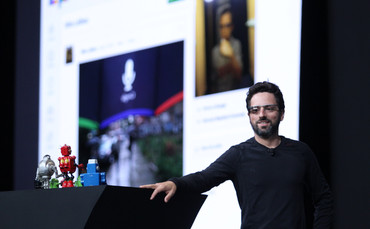
Google Glass should be banned entirely, according to one in five UK and US adults who took part in cloud hosting provider Rackspace's new survey.
The survey, dubbed "The Human Cloud: Wearable Technology from Novelty to Productivity", was commissioned by Rackspace in association with the Centre for Creative and Social Technology (CAST) at Goldsmiths, University of London.
In total, 4,000 UK and US adults were surveyed, of which 20 per cent said that the devices should be banned entirely due to privacy concerns.
Over half of the respondents (51 per cent) cited privacy concerns as a barrier to adoption and 62 per cent thought that Goggle Glass and other wearable devices should be regulated in some form.
But Rackspace CTO John Engates told Computing that such concerns will disappear when people get to grips with the technology and the possibilities that it allows.
"The trend reminds me of when e-commerce came to the forefront and it took everyone a while before putting their credit card numbers into the web and making a transaction, but that has since snowballed. It's just early days, these concerns will fade away when people see the benefits of using the technology," he stated.
But many respondents already believe that wearable technology such as the Nike+ FuelBand and the Jawbone UP are beneficial.
For example, 63 per cent of UK and 71 per cent of US respondents said that the technology had improved their health and fitness, while one in three overall respondents believed that it has helped their career development.
These benefits have perhaps resulted in citizens being more willing to share the data that is generated by wearable technology with central or local government, allowing authorities to crowd-source insights in the hope of being able to enhance public services.
Nineteen per cent of UK respondents and 22 per cent of Americans said they were willing to use a wearable device that monitors location for central government activity, and one in three British and American citizens would be willing to wear health and fitness monitors that share personal data with the NHS or a healthcare provider.
"We are already seeing wearable technology being used in the private sector, with health insurance firms encouraging members to use wearable fitness devices to earn rewards for maintaining a healthier lifestyle. It is likely that the public sector will look to capitalise on the wearable technology trend with a view to boosting telehealth and smart city programs," said Chris Brauer, co-director of CAST at Goldsmiths, University of London.





